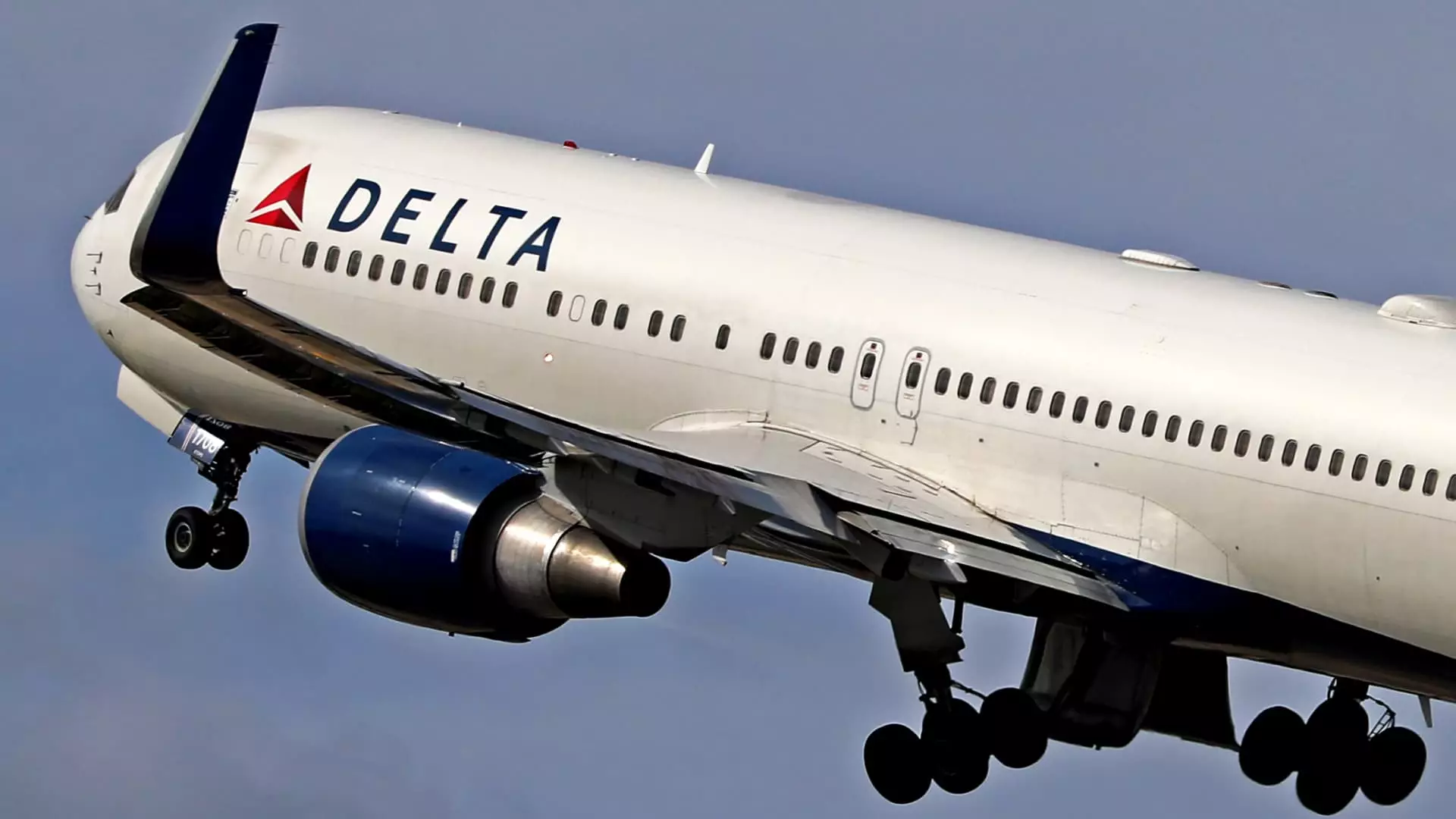The recent sharp downturn in airline stocks is alarming, with many analysts suggesting that it’s not just a temporary turbulence, but indicative of deeper economic issues. Major players like Delta Airlines have already felt the impact of changing consumer habits, driven largely by a decline in travel demand. Jefferies, a significant finance company, has just downgraded Delta from a “buy” to a “hold,” and halved its price target. For an industry reliant on steady revenue streams, that’s not just disappointing news; it’s a stark warning. As more consumers tighten their budgets, the airlines must grapple with the reality that their most lucrative customers may be flying less or seeking more affordable alternatives.
Tariff Terror: A Devastating Headwind
Adding to the airlines’ woes are looming tariffs. Rather than being an external irritant, these tariffs could serve as a substantial deterrent affecting pricing strategies and profitability. As the political landscape shifts, airlines face increasing uncertainty about future travel costs for consumers, which could lead to further reductions in booking rates. This uncertainty creates a paradox: as travel becomes more expensive due to tariffs, the industry finds itself in a race against time to retain its customer base. The threat of fluctuating costs looms large, discouraging those on the fence about making travel plans.
Impending Earnings: A Crucial Crossroad
As Delta prepares to kick off the earnings season for U.S. airlines, all eyes will be on their financial disclosures and forward-looking guidance. Expectations are low, and if Delta falls short, it might trigger an avalanche of skepticism toward the entire sector. With American Airlines and Southwest facing similar downgrades, the entire industry finds itself caught in a downward spiral, feeding into each other’s declines. Uncertainty looms heavily as stakeholders brace for potentially harsh revelations about travel demand—especially within the domestic market, which is a critical revenue source.
The Spending Paradox: Credit Card Declines
Recent reports from Bank of America reveal a troubling relationship between overall credit card spending and airline expenditures. Even as total consumer spending ticks upward, airline-related spending has plummeted by 7.2%. This increasingly wary sentiment among consumers is crying out for attention. The correlation between consumer confidence and discretionary travel expenditures cannot be ignored. A perfect storm of external factors—disappointing weather, economic hesitation, and a love affair with staycations—has fostered an atmosphere where leisure travel is becoming a secondary concern for many.
Resilience in the Eye of the Storm
Despite the grim forecasts, industry leaders insist a silver lining exists—particularly for high-end travelers. Delta’s success in upselling premium services and leveraging credit partnerships with American Express illustrates resilience amidst the turmoil. This segment of the market seems comparatively insulated from the broader industry woes. While other airlines struggle with declining bookings, Delta focuses on attracting affluent travelers, showing that not all is lost for an industry facing potential collapse.
The aviation industry stands at a precarious juncture, confronting multifaceted challenges that could reshape the landscape permanently. The impending company’s earnings reports will give a clearer picture of how dire the situation really is and whether airlines can navigate this tumultuous environment.

